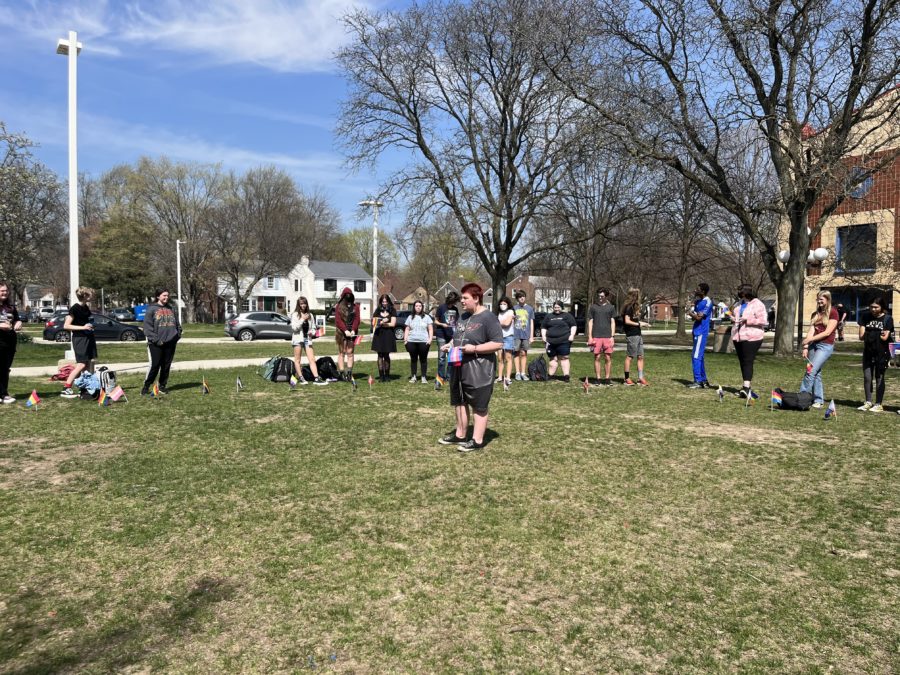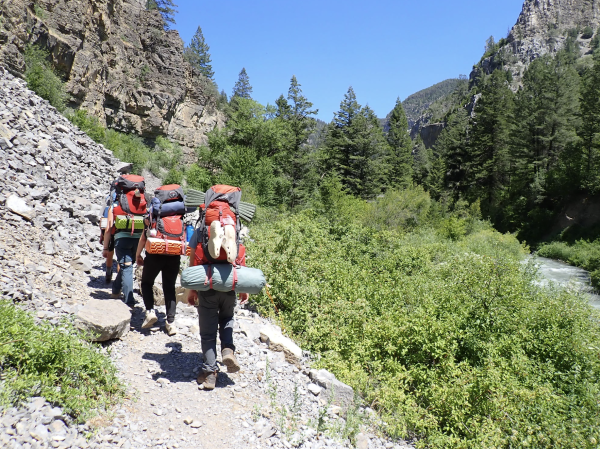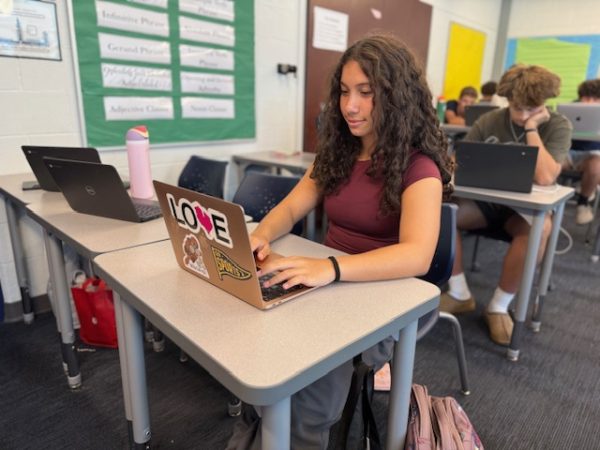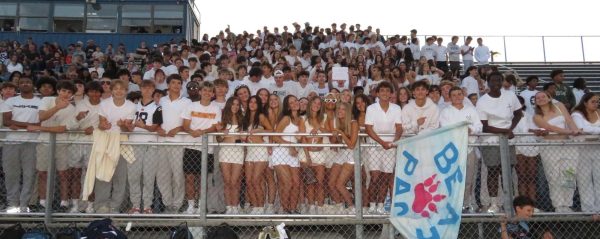Day of Silence: How Berkley High School Participated in Protesting LGBTQ+ Discrimination
On April 14, 2023, middle and high school students nationwide, including at Berkley High School, participated in the Gay, Lesbian, and Straight Education Network (GLSEN)’s National Day of Silence. According to GLSEN’s website, Day of Silence (DOS) is a “national student-led demonstration where LGBTQ+ students and allies all around the country—and the world—vow to stay silent to protest the harmful effects of harassment and discrimination of LGBTQ+ people in schools.” BHS’ Gender-Sexuality Alliance (GSA) took the lead on the preparation and execution of the event. It was their second year participating. Senior Azrael Lomax described the planning for the event as “chaotic,” especially with it occurring at the end of testing week. They say, “we had to make sure that nothing interrupted testing. We also had to ensure that all the teachers knew and to draft emails and make posters and flyers,” they described. The preparation was mainly student-led, with some help from GSA advisors.
The group’s public-facing work began just under two weeks before the event, with a planning meeting open to all students in the Library Media Center on April 4. There, Lomax gave a presentation informing students on what DOS is and its significance. They highlighted statistics pertinent to LGBTQ+ discrimination, including the fact that “82% of LGBTQ+ students experienced firsthand harassment or bullying in their school”. They also mentioned the wave of anti-transgender bills sweeping the nation right now. “It feels like we are going backwards,” they noted. The presentation closed out with informing students on ways they could get involved, from participating in the protest themselves to explaining to teachers and students why some people are staying silent in classes. The slides were also shared out to teachers in order to inform both them and the greater student population.
During this planning meeting, students also made posters bringing awareness to the “breaking the silence” event that would be occurring at 3 pm on DOS and wrote their personal reasons for participating on pieces of paper. “To me, [DOS] is a way for the [LGBTQ+] community to come together and really bond with each other in a way that they normally wouldn’t,” Lomax stated, “You meet a lot of new friends, and you find allies that you wouldn’t know otherwise. It helps make the environment in our community a lot safer”. There was also an informative table on April 10 at lunch, enabling students to learn about the event and providing pins and notecards explaining DOS.
While protests students at BHS may have participated in, like walkouts, rely on being vocal, the lack of speaking is implied with DOS’ name. This may seem counterproductive for some: shouldn’t people be loud about injustice? As Lomax explains: “If [the community and allies] don’t speak, it’s a great way to show the impact of our voices being permanently silenced. If we take those voices away, it has such a dramatic effect on everyone”. Fortunately, the majority of the BHS community has been supportive of these protests, according to the school counselor and GSA advisor Mrs. Weiss. “The reason that I love this district so much is that no matter which Berkley school I worked at, I’ve never had an administrator stand in the way of something students felt was important. There were one or two email complaints from the community, but they have overall been extremely supportive,” she said.
On April 14, many students were seen wearing pins signifying that they were participating in the protest. Once 3 pm rolled around, a significant group of students gathered in the courtyard around a circle of pride flags. Senior Iris Macaulay began the “breaking the silence” ceremony by introducing the event and explaining their experiences being one of only a few in their middle school to participate in DOS events of the past. They then opened the floor to anyone else who wanted to share their experiences. Students stepped in, describing their experiences of being LGBTQ+ at BHS and what DOS meant to them. The discussions were overall positive, as the event was a celebration of the community. Freshman Quinn Lehee spoke about his anxiety towards coming out, saying, “I was afraid I’d lose a sense of relatability to my peers if I came out, but it’s been so much better since”. That concept of community was one that carried through all of the speakers: a trait especially embodied by the closing of the ceremony. Macaulay began a countdown from three, and from there students cheered and clapped with joy, finally breaking the silence.
DOS pushes people in the LGBTQ+ community to recount their experiences and to draw attention to them. Especially in today’s volatile climate against the community, it is also especially important for allies and those outside of the community to reflect on their behaviors to see how they can improve their allyship. Mrs. Weiss hopes this event encourages this thinking in the staff. “I just hope that us visibly continuing to speak out loud, doing things like DOS, and forging ahead with student initiatives has an impact,” she says. “Even if a staff member might not consider themselves an ally or has hesitations, the exposure and the continued presence of those important things will stay. I don’t know if we can change people’s minds, but I think it’s important to do things relating to student safety with integrity.”
As for what students can do to be better allies to the community, Lomax’s biggest point was to “learn as much as you can. Figure out how harassment affects your friends. Talk to them. Listen to other peoples’ experiences and the facts to help you become better.” Overall, events that bring awareness to discrimination like DOS can hopefully inspire active allyship in school communities.







